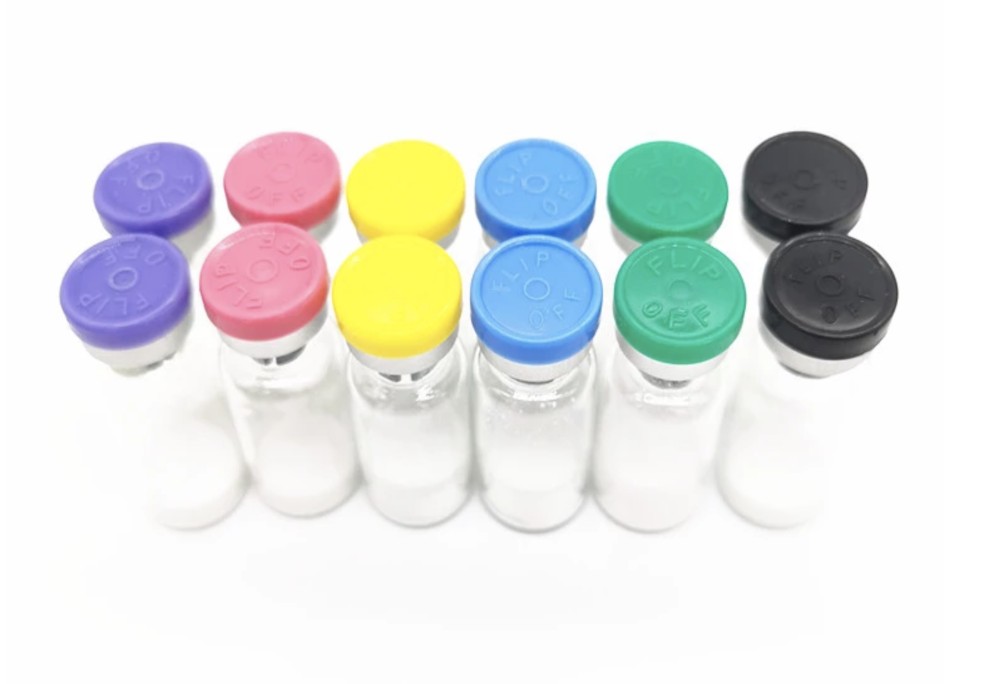Product:Lanreotide
CAS No.:108736-35-2
Synonyms: LANREOTIDE;AUTOGEL;BETA-(2-NAPHTHYL)-D-ALA-CYS-TYR-D-TRP-LYS-VAL-CYS-THR AMIDE;BIM-23014;ANGIOPEPTIN;H-D-2-NAL-CYS-TYR-D-TRP-LYS-VAL-CYS-THR-NH2;H-D-2-NAL-CYS-TYR-D-TRP-LYS-VAL-CYS-THR-NH2, (DISULFIDE BOND);IPSTYL
MF: C54H69N11O10S2
MW: 1096.32
CAS:108736-35-2
Assay:98%
Appearance:white to off-white lyophilised powder
Lanreotide is a synthetic analogue of somatostatin, a naturally occurring inhibitory hormone which blocks the release of several other hormones, including growth hormone, thyroid-stimulating hormone (TSH), insulin and glucagon. Lanreotide binds to the same receptors as somatostatin, although with higher affinity to peripheral receptors, and has similar activity. However, while somatostatin is quickly broken down in the body (within minutes), lanreotide has a much longer half-life, and produces far more prolonged effects.The efficacy of lanreotide has not been extensively studied, and results differ greatly between trials and formulations.
Lanreotide (INN) is a medication used in the management of acromegaly and symptoms caused by neuroendocrine tumors, most notably carcinoid syndrome. It is a long-acting analogue of somatostatin, like octreotide. Its sequence is H-D-2Nal-Cys(1)-Tyr-D-Trp-Lys-Val-Cys(1)-Thr-NH2.
Lanreotide (as lanreotide acetate) is manufactured by Ipsen, and marketed under the trade name Somatuline. It is available in several countries, including the United Kingdom, Australia and Canada, and was approved for sale in the United States by the Food and Drug Administration (FDA) on August 30, 2007.
Lanreotide is used in the treatment of acromegaly, due to both pituitary and non-pituitary growth hormone-secreting tumors, and the management of symptoms caused by neuroendocrine tumors, particularly carcinoid tumors and VIPomas. In the United States and Canada, lanreotide is only indicated for the treatment of acromegaly. In the United Kingdom, it is also indicated in the treatment of thyrotrophic adenoma, a rare tumor of the pituitary gland which secretes.
Lanreotide also shows activity against non-endocrine tumors, and, along with other somatostatin analogues, is being studied as a possible general antitumor agent.






















